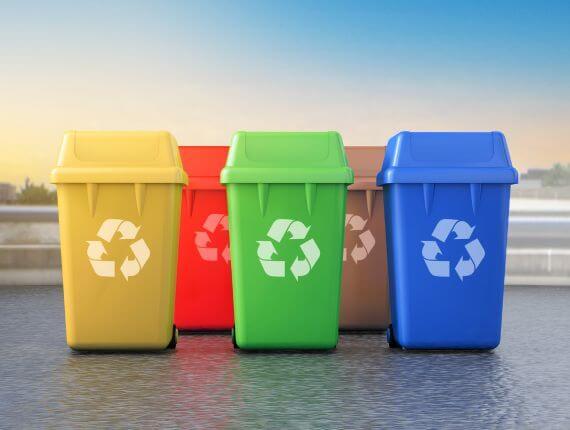Although small and inconspicuous, paper receipts are an element of everyday business operations. Every day, cashiers spend more than we can imagine. Receipts and segregation are more complicated than you might think – are they recyclable? Are they an ecological solution? Or are there worthwhile alternatives?
Where to throw away receipts? Can they be recycled?
Where do we throw away receipts? The most straightforward and general answer is that receipts are not recyclable, so they should be thrown into mixed garbage (usually black containers).
Although it might seem that since they are paper, they can be thrown into a container intended for paper (usually a blue container), this is not entirely true.
Store receipts are often printed on thermal paper that contains chemicals. This makes traditional receipts unsuitable for recycling. They cannot be recycled in the paper recycling process, which poses a challenge for waste paper processing facilities. The appropriate place to dispose of such receipts is mixed waste containers.
Receipts – where do you throw away the blue ones?
The good news is that in addition to traditional white receipts on slippery paper, we also have those printed on blue paper with the FSC certificate. They are more ecological: such paper is resistant to light, water, oil, and, importantly, recyclable. The certificate itself tells us that the paper used for blue receipts comes from sustainable crops, which contributes to the protection of natural resources.
Receipts – sorting is one thing, but what about storage?
In addition to proper disposal, it is essential how to store receipts. From the point of view of data preservation, it is necessary to ensure that it is not exposed to sunlight, but when the receipt is no longer needed, it must be thrown into mixed garbage.
But that’s not all: you may know that it is possible to store receipts electronically, e.g. by scanning, which helps to avoid unnecessary space consumption, whether in the office or at home.
Tip for entrepreneurs: Companies that collect foil and waste paper, as well as document destruction, can support your business in effectively disposing of more significant amounts of receipts, contributing to responsible waste management.
What else can you do? Enter e-receipts
Receipts printed on thermal paper are not recyclable. If you care about environmentally friendly solutions, consider issuing receipts in digital form. E-receipts do not generate paper waste and can be stored electronically, which makes them easier to manage.
E-receipts are an ecological alternative to traditional paper receipts. Why is it worth it? Think about benefits such as:
- waste reduction,
- saving natural resources,
- ease of document management.
Their introduction may be an essential step towards sustainable enterprise operations, supporting environmental protection and increasing the level of efficiency in the area of document management. Get to know the E-PARAGON+ product, which ensures the digitization of receipts and non-fiscal documents.
Summary
Efficient segregation and recycling of paper receipts is not always possible, so introducing simple but effective paper waste management practices is an essential step towards following the principles of sustainability in business operations. The most important thing here is the more significant, bolder steps your company can take – such as switching to electronic receipts.
Finally, remember: where do we throw away our receipts? Unless they are blue receipts, they go to mixed waste.


